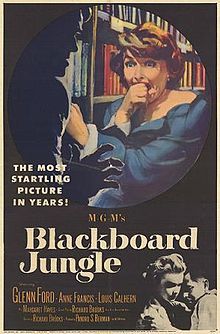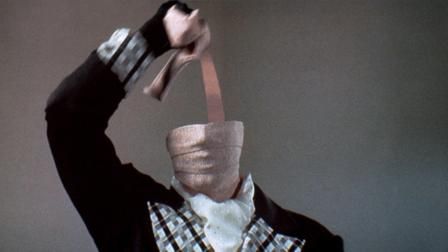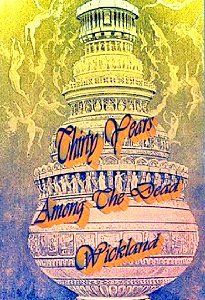Monday, October 28, 2013
What did Obama not know and when did he not know it?
The list of grave problems our Ignoramus in Chief didn't know about (we are told by his advisors/sycophants) -- warnings of a planned attack on the Benghazi consulate; eavesdropping on phone calls of foreign heads of state and domestic heads of households; the predictable floperoo of the ObamaCare website; a realistic knowledge of the situation in Syria -- expands seemingly by the day.
The possibility Lord Obama was informed about these, did nothing or thought they could be kept Just Among Us Friends and counted on his courtiers to make excuses after the fact if the need arose, is scary enough. But even scarier is the possibility that he plain didn't bother to find out about what a U.S. president should make it his business to delve into.
Richard Fernandez, an analyst so brilliant that calling him a blogger seems inadequate, has an instant classic on these matters at his site, Belmont Club. I rarely just refer to someone else's posting, but there's no point even quoting some of his dead-on observations -- follow the link and read the piece. Its evidence, logic, perfect-pitch irony, and literary quality are a model of how it should be done.
Even in our era of short-attention-span, bang-bang commentary, there are still great essays on the web.
Saturday, October 26, 2013
Teacher, have you rehabilitated yourself?
"These days, when teachers and African American male students have a classroom dispute, it's the teacher who may be asked to stay after school," reports the city's third-rate daily, the Chronicle.
You can already see where this is going. Obviously slavery is making a comeback. Racism rules. (The story, however, does not specify the race of the teachers who brandish the whip.)Cultural sensitivity training for educators is on the rise, a response to an unsettling trend that has resulted in disproportionately higher suspension rates among African American male students nationwide in the past 20 years, roughly three times that of their white counterparts.
Consider the assumptions and facts in this one paragraph. Black male students don't misbehave in ways that contribute to depriving other students -- including black students -- of the chance to learn something. Rather, they are "troubled." No doubt. Al Capone was surely troubled. Unfortunately for him, he was white and no one had yet heard the phrase "sensitivity training."... This is a problem that has become recognized as a national issue: Instead of dealing with troubled kids, teachers remove them from the classroom. In July, President Obama signed an executive order establishing a panel to promote a positive school climate and adopt nonpunitive forms of discipline for black male students.
"Teachers remove them from the classroom." How dare they? Removing them just for preventing the teachers from teaching? "Suspensions and expulsions are still used for the most egregious infractions - those involving violence." Barbaric!
"President Obama signed an executive order ... ." Does a day go by without His Worship signing an executive order? Or a dozen? He doesn't have to show you no stinkin' law. For that matter, why is it the business of Washington how local school districts handle their troubled juvenile delinquents of color? But that thought comes from a vanished America, one I can only dimly remember.
"A positive school climate." I would expect that removing violent troublemakers from the classroom, which (despite the writer's implication) almost no teacher is likely to do except as a last resort, could contribute to a positive school climate. And what's with this "nonpunitive forms of discipline for black male students"? So punitive discipline is still on tap for white male students? And presumably females of any tint?
The writer, Chip Johnson, has no idea of what dangerous foolishness he clearly favors. He admits in an act of bravery, "Initially, it struck me as silly political correctness to train a teacher when the student acts up, and I had a hard time understanding the logic behind such a movement." But he quickly falls into step. Chip loves Big Sensitive Brother.
About the only base he fails to touch is "unconscious racism." Oh, wait a minute:
Administrators and teachers in Oakland and Berkeley say there's an unconscious bias by some teachers to identify black boys as potential troublemakers the first time they enter the classroom. With new teachers, there's sometimes a reluctance to engage with those students when teachers are intimidated - and in some cases - fearful of challenging them.Who can blame them for being reluctant to engage and intimidated if it means they might have to write "I will not expel any troubled youth" a hundred times on the blackboard after class?
Tuesday, October 22, 2013
Zenph master
Zenph Studios, which I wrote about here, continues its "re-creations" of historical recordings. Re-creations is no exaggeration -- the old recordings, which can make it hard to fully appreciate the original performances, are made into computer programs that play modern instruments (so far, piano), in sound caught with today's first-class microphones and mixing boards. You are there with the player, and vice versa.
Except for a CD re-creation of Art Tatum in a 1949 recital, I've had trouble warming to the Zenph concerts. The Rachmaninoff playing Rachmaninoff disc is interesting, but it's hard to believe that what we hear is anything like his playing that made him one of the great virtuosos of his time. Glenn Gould's much-celebrated jazzy performance of J.S. Bach's Goldberg Variations is just not to my taste.
Now we have keyboard whiz par excellence Oscar Peterson in a collection titled Unmistakable. The label says the selections on the disc were recorded in the '70s and '80s and not previously released commercially. After going through the usual Zenph digital processing, the signal was converted back into analog and fed into a whopper of a piano -- a Bösendorfer, among the world's hugest and potentially loudest, a piano the liner notes tell us Peterson favored. The results were recorded in an Abbey Road studio.
No doubt about it, Peterson can wow you with his technique on the ivories. His legerdemain has an almost effortless air. In Unmistakable he switches tempos and styles often in the same piece. Want to hear nimble fingers? Listen to him tear through "Back Home Again in Indiana" like a freight train whose engine's brakes have failed. Or "Take the A Train" and "Caravan" on the Ellington medley -- you hardly believe what you're hearing even as you are.
So what's to complain about? Maybe nothing unless you're a grouch like me. I seem to remember from his other, accompanied albums, that Peterson could play a ballad with warmth and sensitivity when the spirit moved him. It doesn't here. To be fair, he didn't realize at the time he was recording for posterity. Maybe these were just sort of warm-up exercises.
Still, sticking to Unmistakable, you'd hardly know any of these items are songs. They are just chord progressions on which he hangs flamboyant decor. Except for a few interior patches, they sound like mere excuses to show off his unquestionable dexterity. Virtuosity is of course important for a jazz musician, but it's not everything. Creating a mood, showing us some of the mystery of creation, drawing from us feelings we didn't know we had or haven't experienced for a long time -- those are equally important elements of jazz.
That's what I miss here, and often in this artist's playing. He's a finely tweaked, German sports car of a musician giving glossy versions of platitudes. At his wildest Thelonious Monk couldn't have played with the kaleidoscopic sparkle Peterson brought to his Bösendorfer. All Monk did was take us into new worlds that we could never have imagined without him.
To end on a positive note: The recording brings Peterson to life in a way not heard before -- the best contemporary recording is streets ahead of what was possible even in the 1970s. No fan of Peterson (1925-2007) should be without this. And many people who respond to music will enjoy hearing what the human mind and hands in close collaboration can produce in jazz pianism.
Thursday, October 17, 2013
The GOP's true colors
Republican Party, 1854-2013
I sincerely hope the Republicans' craven surrender on ObamaCare will consign the party to the dust of history.
It has been obvious to many of us for a long time that the GOP as an "opposition" party is only play-acting. Played badly, to boot. They forgot their lines, tripped while walking across the stage, and were content to be cast as villains as long as they picked up a luscious paycheck.
Yet there are still people -- aye, "conservatives" -- who tell us there is no alternative to the vote-buying store other than working through the established parties. Grassroots. Neighborhoods. Knock on doors. "I'm collecting signatures to get Molly Phlegm on the ballot. She's been a great parks and recreation director and she'll bring a fresh approach to Washington."
Yet there are still people -- aye, "conservatives" -- who tell us there is no alternative to the vote-buying store other than working through the established parties. Grassroots. Neighborhoods. Knock on doors. "I'm collecting signatures to get Molly Phlegm on the ballot. She's been a great parks and recreation director and she'll bring a fresh approach to Washington."
Even the slowest learners can now see what the GOP as an institution is made of: nothing.
Can we have a serious opposition party, please?
Bye, Republicans. The country club awaits. Don't slam the door on your way out.
Monday, October 14, 2013
Opening the attachments
Lately I've come to take the idea of spirit attachment seriously.
In spirit attachment, non-corporeal beings (almost always those who have lived on earth and passed on) hang around near the earth plane and gravitate to the living. They seem to sort of penetrate and mix with the aura (etheric body, vital body, Allan Kardec's concept of the perispirit) surrounding or providing a kind of blueprint for the physical body. They are then in a position to influence the thoughts and moods of those they have "stuck" to.
Spirit attachment is not to be confused with possession. In possession, a spirit (or occasionally more than one) completely takes over the mind of a living person. The phenomenon is rare, which is probably just as well. There are a few cases of a benign, or at least harmless, possession -- the most famous being the case of Lurancy Vennum, which has unfortunately acquired the silly name of "the Watseka Wonder."
Of course, possession perfectly supplies the ingredients of horror films, TV shows, and books. I sometimes think the greatest barrier to serious study of the paranormal in our time is not the skepticism of scientific materialists, who at least tend to ignore the subject. The biggest handicap is the entertainment industry, and its ignorant writers and producers who think only about how to make it as creepy and sensational as they can.
Back to spirit attachment, which possibly everyone experiences to some extent. I know that sounds extravagant and I have till recently not been keen to spend much time researching it. However, a few decades ago I volunteered to be a subject at a class for developing psychics in Berkeley. A dozen or more students first wrote down their impressions (so as not to influence one another, a smart practice) and then read out loud what they thought they'd picked up from my aura. They described dozens of spirits that were supposed to be influencing me. I knew next to nothing about spirit attachment then, and I must have looked alarmed or expressed concern. The facilitator tried to reassure me. "It's no big deal. We all have lots of spirits in our space."
I didn't feel like following it up, and put it out of my mind for years.
Well then, what is the evidence for spirit attachment?
The first is self-awareness. If we watch how our mind works as much as we can throughout the day, we will notice anomalies. Impulses to do things we know we shouldn't do, wouldn't dream of actually doing ... so why does the thought appear? Or we may be driven to actually give in to temptations that we have every reason to resist, like snacking on junk food.
Incongruous moods: everything's fine, no serious problems chasing us and nipping at our hocks. Why are we depressed and the feeling just won't go away? Or maybe we're irrationally jolly. Or we want things that we know from experience will be disappointing, but something or someone draws us toward them.
Naturally, psychiatrists and psychologists have non-paranormal explanations. Given all the things that can go wrong with our physiology and biochemistry, why shouldn't some of them drive our moods and impulses? But except in brain pathology, no one has shown a reliable link between physical maladies and mental states. Plenty of people with bodily ailments and chemical imbalances are normal, high-achieving.
Then there's the quackery of "unconscious" theories of motivation that still rule in some quarters of the psychotherapeutic professions. Few would deny that the mind has an unconscious dimension, but the idea that it erupts like Vesuvius or sends out tremors to the conscious mind is no more than a theory or a faith -- undemonstrable and and unfalsifiable.
Introspection isn't offered as a prima facie case for spirit attachment, just a technique worth considering. But, as in most areas of psychical research involving survival of death and post-mortem communication or influence, the best evidence arrives through mediumship.
Unfortunately studies of mediums have largely concentrated on talking with spirits. Relatively little work has been done to learn about spirit attachment. But there is one big-time exception.
Carl Wickland (1861-1945) was a medical doctor who happened to be married to a medium. Wickland developed a technique to drive the attaching spirits out of the victims whose lives they were messing up. The method was primarily electric shock, which the attaching spirits felt as torment. Electroshock, which was still in use at some psychiatric hospitals as late as the 1960s, is now in bad repute and justifiably so. But when performed with understanding, it freed the patient from a meddlesome psychic leech.
Mrs. Wickland had the apparent ability to offer a temporary body to the obsessional spirit, making it possible for Wickland and others to talk to the spirit (which, however, was still invisible). To send a nasty spirit to occupy his wife, even for a brief time, was bold; I can't imagine taking the chance if I had the ability, even if my wife was fully willing.
The spirits were at first argumentative, tiresome, unaware they had died. Wickland "counseled" them until they began to see the light and were willing to be taken under guidance by helping spirits who would teach them about spiritual, as opposed to earthly, reality. They were then led away to discover higher realms and Mrs. Wickland was no longer their hostess.
Wickland described his therapy for the afterlife in Thirty Years Among the Dead (1924). It's tempting to quote from the transcriptions of his "conversations" with disembodied pests, but it would take too much space to give their flavor. I like his style: he understood that the spirits were confused, addicted, filled with inappropriate emotions from their earth lives, and he undoubtedly wanted to help them as well as the patients they'd been driving nuts. He was firm with them, told them in no uncertain terms how they misunderstood their situation, but always held out hope that they could escape the misery they'd made for themselves.
The session transcripts get repetitious after awhile. Once you grasp what he's doing and how, it probably isn't necessary to finish reading the long book. Wickland was faced with the problem that has beset so many writers describing paranormal phenomena, at least as far back as Frederic Myers's Human Personality and Its Survival of Bodily Death (1903): they don't want to bore the reader with too many examples, but at the same time it's important to preclude accusations that they were just cherry picking a handful of especially dramatic cases. Numbers play a big role in scientific evidence. A few instances can be dismissed as anecdotes, flukes, or illusory observations. But when the totals start to add up, and up, the laws of statistical probability appear -- and there's nothing more scientific than statistical significance.
I wish Wickland's research could be replicated under modern experimental conditions (although I've never heard any suggestion that his results were fraudulent). But that would require a new Dr. Wickland and a new Mrs. Wickland. Our current academic parapsychologists would steer clear of them.
Wednesday, October 09, 2013
The giving
In the New Testament, Jesus frequently conveys deep truths in the form of simple anecdotes, or parables. It seems that after Jesus's crucifixion and (so it is said) resurrection, the habit persisted in his apostles. In the Acts of the Apostles (3), we read:
One day Peter and John were going up to the temple at the hour of prayer, at three o'clock in the afternoon. And a man lame from birth was being carried in. People would lay him daily at the gate of the temple called the Beautiful Gate so that he could ask for alms from those entering the temple. When he saw Peter and John about to go into the temple, he asked them for alms. Peter looked intently at him, as did John, and said, "Look at us."Whether you believe the story literally or not, whether you accept that Jesus had anything to do with the cure, this is still a striking account of a higher law of life.
And he fixed his attention on them, expecting to receive something from them. But Peter said, "I have no silver or gold, but what I have I give you in the name of Jesus Christ of Nazareth, stand up and walk." And he took him by the right hand and raised him up, and immediately his feet and ankles were made strong. Jumping up, he stood and began to walk ... .
First, it is told with literary skill easy to miss because of its plainness. The author or authors appear to have deliberately framed it to sound ordinary. "Three o'clock in the afternoon" -- who cares what time it was? We already have been told it was the hour of prayer. "The temple called the Beautiful Gate" -- what did the name matter? The description of the setting reads like a police report.
So we are unprepared when the events of routine daily life are exploded by a healing emanating from out of this world, outside of time.
Most people, believers or scoffers, would perceive the meaning of the story as the removal of the cripple's affliction. Jesus (or God) in action. But the author(s) and contemporary readers were presumably familiar with the Gospels, which are chock full of miracles. For that matter, stories of miracles and magic were at mark-down prices in first- or second-century Judea. It's hard to believe that Jesus's intervention was the point.
So what was?
Again, expectations are confounded. The disabled man expected (or at least hoped) for alms from Peter and John. The reader unfamiliar with the story might imagine the same. But that was not what the apostles gave: "I have no silver or gold, but what I have I give you ... ." (Emphasis mine.)
Being able to walk for the first time in his life, the formerly handicapped man could be excused for believing that was the center of what would later become a parable. But far more profound, I think, were those words, "What I have I give you."
Institutional charities, including the churches, focus on the "silver and gold" of the giving. Won't you sponsor this poor child? Won't you help us conquer disease XYZ? From their own perspective they are right; their benevolent activities swallow cash.
But above all is the effect on the giver's soul. It is like the quality of mercy as described by Portia in The Merchant of Venice:
It is twice blest:
It blesseth him that gives and him that takes.
It blesseth him that gives and him that takes.
The most important thing is not what we give (as long as its result is benevolent). Not how much. But that we give from what we have. It doesn't have to entail sacrifice on our part, whatever moralists say, and it's probably better if we don't diminish our emotional or material wealth in the process, because if we do it can leave a speck of resentment. We give most freely and best when we don't count the cost, because there is no cost.
Does that trivialize giving? I don't think so. We don't have instruments sensitive enough to measure its radii of influence. How few of us have not, one time or another, been rescued from an oily black mind sump by a smile, a kindly gesture, a word of appreciation? When another driver slows to let us change lanes, are we not more courteous drivers (for a bit), just slightly better people?
Giving and taking, taking and giving, may seem a long way from spiritual healing. But they are all blessings, and the world can never have too many.
Thursday, October 03, 2013
I swear to defend the U.S. against enemies foreign and domestic, unless I miss a paycheck
The Director of National Intelligence says that the government's Shutdown Lite could tempt some U.S. intelligence operatives to become double agents working for foreign powers. They have to make ends meet, after all.
Director of National Intelligence James Clapper said it could be easier for enemies to recruit U.S. spies among the federal employees hit by furloughs from the sequester and now the shutdown.Clapper is probably just blowing smoke in support of his employer, Reverend Obama. Still, it is not the least strange pronouncement in a topsy-turvy time. Our director of national intelligence tells the Senate and American people that our intelligence agencies employ functionaries in sensitive positions who might be turned by our enemies because they've been furloughed for what will probably be just enough time to do a few household repairs.
"This is a dreamland for foreign intelligence service to recruit, particularly as our employees already ... [subjected] to furloughs driven by sequestration, are gonna have even greater financial challenges," he said. ...
When Sen. Chuck Grassley (R-Iowa) asked Clapper, point blank, whether the intelligence community could guarantee the security of the United States in the face of the ongoing shutdown, Clapper said no. "I don't feel that I can make such a guarantee to the American people," he told Grassley.
But you have to remember, these are members of the Washington privileged class. The country works for them, and if it doesn't, too bad for the country. Our federal apparatchiks don't know what it feels like to toil for a corporation that can unemploy them in the blink of an eye, along with tens of thousands of their co-workers. They can't imagine spending years looking for a position in their field and winding up as a boiler room salesperson for aluminum siding. Or giving up job hunting and facing the rest of a lifetime as a redundant component of the economy.
The furloughed employees include both support staff and intelligence analysts, according to the official.
Weren't these people checked out to a fare-ye-well to get their security clearances? Aren't they routinely polygraph-fluttered at random times every few years? These aren't high-level operatives like Robert Hanssen with enough pull to deflect investigations (for a while, anyway). Is Clapper saying the U.S. intelligence establishment can't even protect itself against moles in its own "middle management"?
No one asks them to choose death before dishonor. Analysts don't risk capture and interrogation. Is it too much to expect that they might put loyalty to the country that has treated them so generously before the total job security they see as their right?
Subscribe to:
Comments (Atom)










